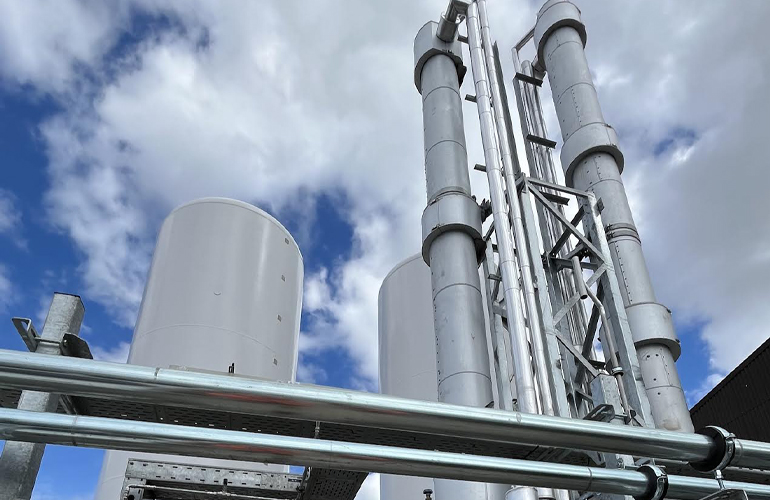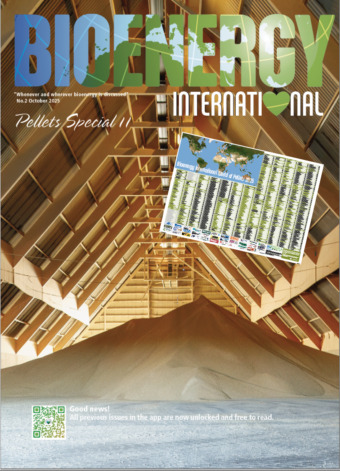Bio Capital group, the UK’s largest producer of renewable energy using food waste, has announced that it will produce biogenic carbon dioxide from its Granville Eco Park anaerobic digestion (AD) facility in Dungannon, Northern Ireland.
One of the first companies in the UK to produce ‘food grade’ biogenic carbon dioxide (CO2) from the anaerobic digestion (AD) of food waste, this marks a major milestone for the AD sector, the supply of renewable bioCO2, and the journey towards a circular economy.
Additionally, Bio Capital will also produce ‘food grade’ CO2 from agri feedstock at its Corbiere Renewables facility in Norfolk, and, in total, will bring 15,000 tonnes of bioCO2 per annum to the market.
Address market shortfall
Formed in 2018 and 100 percent owned by Equitix Group, a leading international investor, developer, and fund manager in infrastructure, Bio Capital Group is currently the UK’s largest producer of renewable electricity and biomethane aka renewable natural gas (RNG), derived from food waste.
The move represents a significant investment from Bio Capital and comes at a time when the UK bioethanol market is in turmoil, with two major plant closures.
With one plant closed and a second closure imminent, this is having a major impact on the UK’s vital supply of bioCO2 – up to 80 percent was provided by the two ethanol plants.
Valuable sidestream
AD produces a biogas mixture of approximately 50-70 percent methane (CH4) and 30-50 percent CO2. In biogas upgrading to biomethane, carbon dioxide is separated from the methane and removed.
While the biomethane is already repurposed to produce renewable electricity, green gas to the grid, and to fuel vehicles, the new state-of-the-art CO2 recovery systems allow Bio Capital to capture and repurpose the CO2 portion.
Through further refinement on site, achieving purity levels of 99.9 percent, the captured bioCO2 can then be certified as ‘food grade’, meeting the highest quality standards set by agencies such as the European Industrial Gases Association (EIGA).
The bioCO2 will then re-enter the market and has multiple applications in the food and beverage sector, as well as within the horticulture, refrigeration, and manufacturing industries.
Bio Capital is a pioneer in the AD sector, and we are proud to be realising a new milestone in the supply of renewable CO2. This is the circular economy in action, and the investment we’ve made at our plants in Northern Ireland and England is coming to fruition at a time when the UK is facing a major shortfall in domestic CO2 production. Bio Capital is then able to offer a sustainable and reliable supply of ‘food grade’ CO2 at a crucial time for the market, said David McKee, Interim CEO of Bio Capital.
Stable bioCO2 supplies
Bio Capital’s Granville Eco Park is the largest facility of its kind in Northern Ireland, and in partnership with Granville Energy Supply, is an exemplary AD circular model.
With a 90,000-tonne food waste capacity, the plant operates 24/7 and is a cornerstone for scale and reliability, thereby enabling Bio Capital to produce consistent and reliable supplies of bioCO2.
Bio Capital’s Corbiere Renewables facility is located on the Raynham Farm Estate in Norfolk, which supplies agri feedstock directly to the plant and receives biofertiliser in return.
This increases crop yield and reduces their reliance on chemical fertiliser by up to 50 percent.
The dependable supply of feedstock from the estate will ensure a reliable supply of bioCO2.



